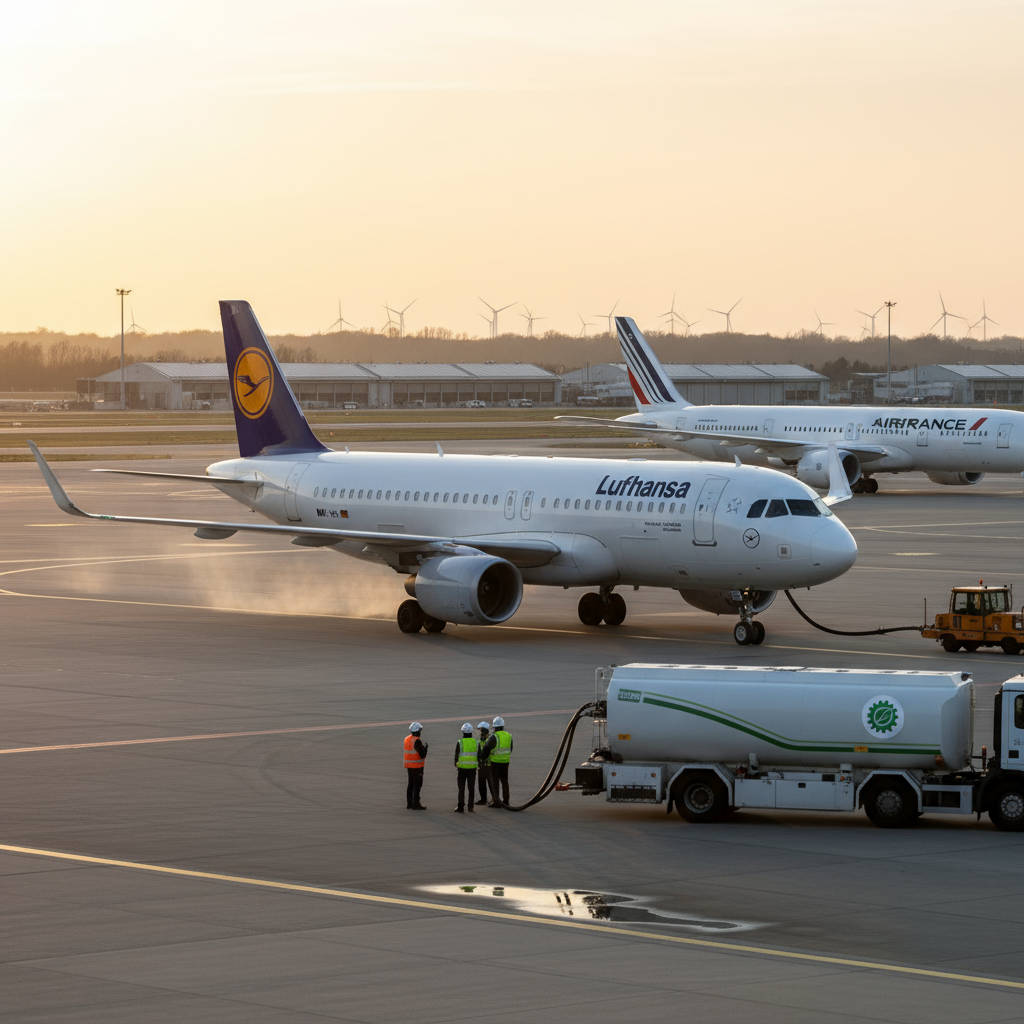Physical Address
304 North Cardinal St.
Dorchester Center, MA 02124
Physical Address
304 North Cardinal St.
Dorchester Center, MA 02124
Global aviation news tracker
Global aviation news tracker

From November 2025 the EU will require at least 2% Sustainable Aviation Fuel (SAF) in blends for every flight departing EU airports.
The new rule, part of the EU’s Fit for 55 climate package, makes Sustainable Aviation Fuel (SAF) mandatory at a minimum of 2% by energy content for all commercial departures from EU airports starting in November 2025. Regulators say the mandate is designed to accelerate market demand and stimulate investment in SAF production and distribution.
Airlines operating within the EU now face compliance, reporting and blending obligations; member states will monitor supply chains and issue penalties for non-compliance. Industry groups have welcomed the certainty but warned that current SAF supply — which includes synthetic and bio-derived fuel pathways — must scale quickly to avoid price shocks or route disruptions.
At its core, the mandate forces a baseline shift: SAF will move from niche voluntary purchase to a legal requirement on every departing flight. The EU’s approach aims to create predictable demand, encouraging producers to invest in new SAF plants and refiners to adapt logistics at airports. While 2% by energy content is modest, EU officials argue it’s a practical first step toward larger targets planned later in the decade.
Airlines and airports will need to update fuel procurement contracts, record-keeping and verification processes to show compliant SAF blending. Long-haul carriers have previously leaned on voluntary SAF offtakes and corporate purchase agreements; under the new rule, compliance becomes an operational consideration for regional and low-cost carriers too.
Policy experts say the impact will depend on feedstock availability, certification throughput, and how quickly member states enforce the rule. If production scales, 2% could prevent millions of tonnes of CO2-equivalent emissions over several years and help the EU meet its Fit for 55 objectives. If not, the measure could push costs higher for carriers and passengers before supply catches up.
Expect the EU mandate to shape airline sustainability strategies, procurement planning, and investment flows into SAF production across Europe from November 2025 onward.